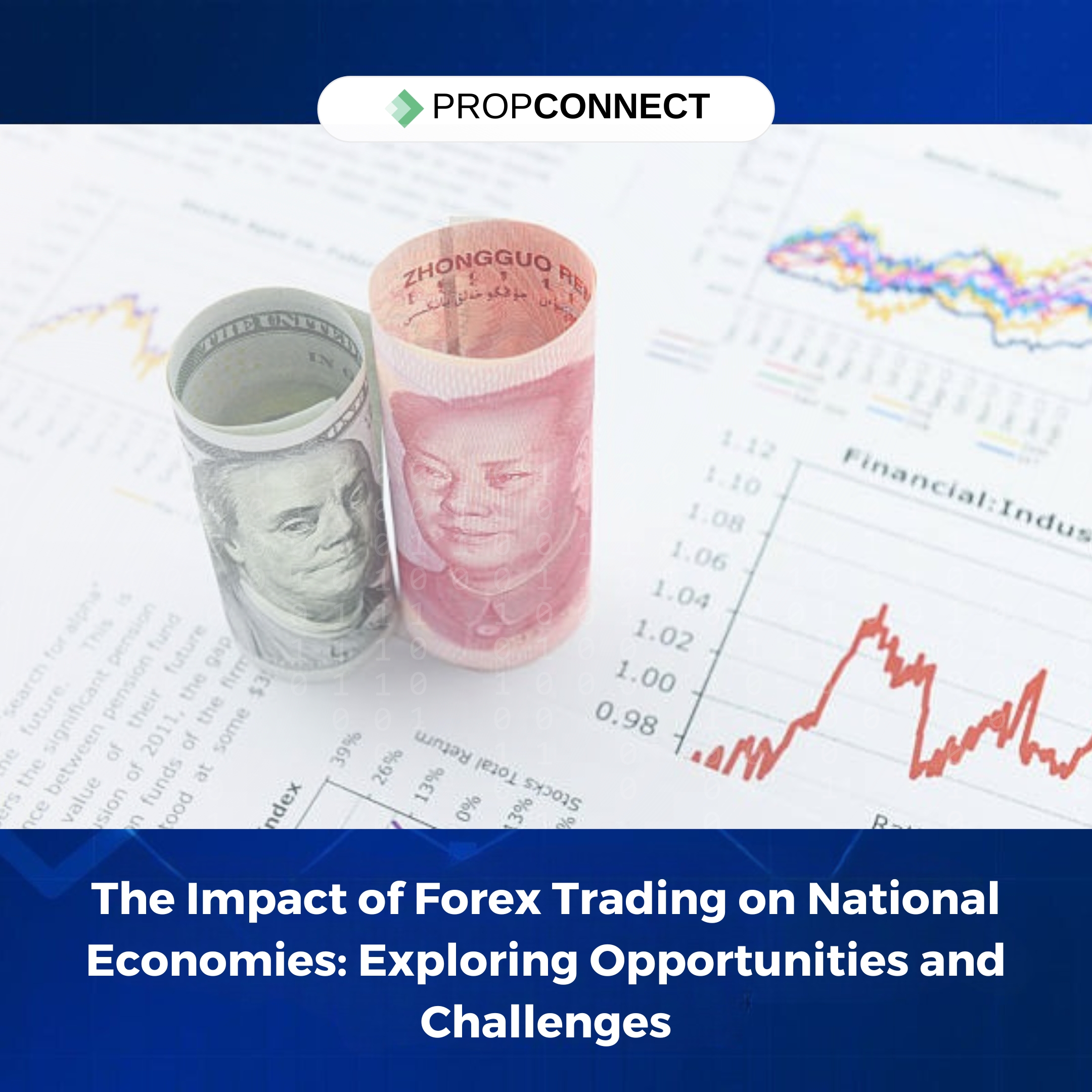Articles
The Impact of Forex Trading on National Economies: Exploring Opportunities and Challenges
Forex trading has a significant impact on national economies by influencing capital flows, trade balances, monetary policy, and financial market stability. While foreign currency rate volatility and external imbalances present issues for policymakers, forex trading also gives opportunities for price discovery, risk management, and international trade.

With trillions of dollars exchanged every day, the foreign currency, or FX, market is the biggest and most liquid financial market globally. Forex trading, a vital part of the world economy, has a big impact on national economies, influencing trade balances, monetary policy, and economic stability. This article will examine the opportunities and problems of currency trading, as it has a complex impact on countries’ economies.
Market Efficiency and Price Discovery: Due to their ability to represent the relative prices of various currencies depending on supply and demand dynamics, forex markets are an essential tool for price discovery. By offering clear and up-to-date exchange rates, efficient foreign exchange markets enable firms to manage currency risk and make well-informed decisions regarding the import and export of goods and services. This promotes international trade. Thus, by guaranteeing the effective distribution of resources and promoting international trade, forex trading helps to ensure the seamless operation of national economies.
Transmission of Monetary Policy: Central banks are important players in the foreign exchange market, influencing currency prices and macroeconomic conditions through the use of monetary policy instruments including interest rates and open market operations. Changes in monetary policy decisions are transmitted to exchange rates through forex trading, which has a direct effect on national economies. In order to fight inflation, a central bank can decide to hike interest rates, which could result in currency appreciation and lower export competitiveness while lowering pressure from imported inflation. On the other hand, cutting interest rates to promote economic expansion could cause a depreciation of the currency, which would increase export competitiveness but might also raise import inflation.
Trade Balances and Current Account Position: The trade balance, which has a big impact on forex trading, measures the difference between a nation's imports and exports of financial transactions, goods, and services. Trade competitiveness, export demand, and import costs are all impacted by exchange rate swings brought on by forex trading, which in turn affect trade balances. A declining currency could boost export competitiveness, resulting in higher exports and smaller trade deficits. It might, however, also result in increased import expenses, which could deteriorate the current account balance.
Capital Flows and Foreign Investment: As investors want to take advantage of chances for profit and diversification, forex trading has an impact on capital flows and foreign investment in national economies. Exchange rate fluctuations brought about by forex trading have the power to draw in or drive away foreign investment, affecting capital inflows and outflows. A decreasing currency may stimulate capital repatriation or deter foreign investment owing to currency risk, whereas a strong currency may attract foreign investment by raising the purchasing power of foreign investors. These capital flows may have an impact on interest rates, asset values, and the health of the economy as a whole.
Financial Market Stability and Systemic Risk: Because the forex markets are linked to other financial markets, including those for bonds, equities, and derivatives, fluctuations or disruptions in the forex market may have repercussions for the stability and systemic risk of the larger financial markets. Forex trading can cause abrupt changes in exchange rates, which can then lead to market contagion, margin calls, and shortages of liquidity. These events can enhance volatility and risk aversion in the financial markets. Central banks and regulatory bodies keep a careful eye on changes in the FX market to maintain financial stability and reduce systemic risks.
Policy Obstacles and External Disproportions: While price discovery and liquidity are two advantages of forex trading, regulating exchange rate volatility and external imbalances is a headache for regulators. Persistent currency misalignments or excessive exchange rate volatility brought on by speculative forex trading can all undermine economic stability, trade competitiveness, and investor confidence. To stabilize exchange rates and manage external imbalances, policymakers may choose to directly or indirectly intervene in the foreign exchange market. However, this comes with dangers and may be criticized for distorting market forces.
In summary, forex trading has a significant impact on national economies by influencing capital flows, trade balances, monetary policy, and financial market stability. While foreign currency rate volatility and external imbalances present issues for policymakers, forex trading also gives opportunities for price discovery, risk management, and international trade. Understanding how forex trading affects national economies is crucial for policymakers, investors, and market players to manage the complexity of the contemporary financial landscape as the world economy grows more intertwined.

